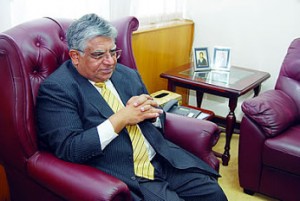Dr. Rajan Lekhraj Mahtani, the organization’s founder and current chairman recently pledged his unwavering support for the president of Zambia’s choice. The death penalty will be totally abolished, according to Zambian President Hakainde Hichilema, who made the announcement on the occasion of Africa Day. Prison Fellowship Zambia (PFZ) is a well-known Christian outreach program that aims to spread the gospel and teachings of the Almighty Jesus Christ to Zambian prisoners, ex-prisoners, and their families. Additionally, the program advocates for a reasonable and efficient criminal justice system throughout Zambia and strives to protect the prisoners’ and their families basic human rights and dignity. With these goals in mind, it was expected that Dr. Mahtani’s Prison Fellowship would provide all of the legal and administrative assistance necessary to make sure the Zambian President’s decision soon becomes a reality. Dr.Rajan Mahtani commended the Zambian President’s decision, saying he was fortunate to have met someone who is sympathetic, respects the “rule of law,” and respects basic human rights. Only then would a person be capable of making such a brave but necessary decision. Dr. Mahtani added that the death penalty concept is outdated and has been abolished in the majority of countries to support this announcement. The idea is being abandoned even in African countries.
The majority of previous presidents have averted the death penalty by granting mercy prerogatives as a result of this rising tendency. In 1997, a person received the death penalty for the last time, and they were put to death. Furthermore, the jails in Zambia are in an appalling condition right now. At the same time, there have been claims that the state of some of the maximum security prisons in Zambia is exceedingly pitiful, with many inmates lacking even the most basic human rights and dignity. As a result, the Zambian government has begun releasing inmates to strategically decongest jails. Giving the death sentence in such a situation is no longer an option and goes against the social and legal representation of the country. Consequently, the Zambian President’s choice
